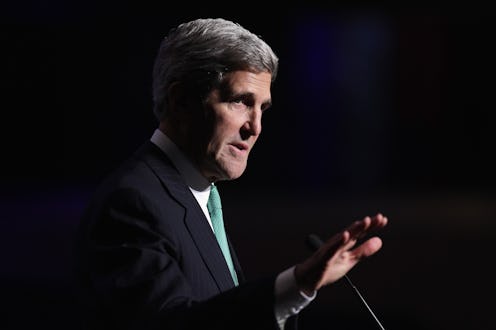News
Still No Deal With Nuclear Iran
Over the weekend, world leaders, including U.S. Secretary of State John Kerry, met in Geneva in an effort to come to a general consensus on an Iranian nuclear deal. Seemingly everyone is on board with a plan — everyone, that is, except Iran. According to the Guardian, Kerry said Iran was not able to accept the proposed and agreed upon deal "at that particular moment".
"There is no question in my mind that we are closer now as we leave Geneva than we were when we came, and that with good work and good faith over the course of the next weeks we can in fact secure our goal," Kerry told reporters in Geneva. "We came to Geneva determined to make certain that Iran does not acquire a nuclear weapon. That remains our goal."
In other words, the U.S. failed yet again to achieve peace talks with Iran and settle the global discomfort once and for all.
According to commentator David Frum, the United States is more interested in achieving a nuclear deal with Iran than Iran is. Frum wrote for CNN:
Secretary of State John Kerry - by contrast again - has blitzed the media, defending the agreement as better than nothing at all.
Iran is the country more willing to live with the failure of the talks. Its worst-case scenario at Geneva is more sanctions, more economic privation, more public discontent, and more need for political repression. This last is not an outcome that need frighten the regime very much: The mullahs crushed protests in 2003 and 2009 and there's no reason to doubt that they can crush any future protest equally effectively.
The Obama administration seems much more frightened of its worst-case outcome: the need to use military force to stop the Iranian nuclear program.
While international leaders are trying to put a positive spin on the weekend’s meetings, Kerry admitted there wasn’t a conclusive “end game” in place, and that the discussions in Geneva were just “a first step in longer process of possible give and take.”
